The United Kingdom-Brunei Green Economy Framework Report was launched yesterday, aimed at helping chart the way for long-term economic growth while also meeting environmental sustainability goals.
The report sought to formulate a sustainability roadmap to guide strategies in diversifying the Sultanate’s economies. It was also one of the country’s initiatives for achieving its commitment of net-zero emission by 2050.
Minister at the Prime Minister’s Office and Minister of Finance and Economy II Dato Seri Setia Dr Awang Haji Mohd Amin Liew bin Abdullah emphasised the need to move away from fossil fuels as the main driver of Brunei Darussalam’s economy.
The minister said the report promotes collaboration to identify opportunities for targeted investments, policy improvements, business matching and international partnerships as the nation aims to build a resilient and sustainable economy that balances environmental stewardship with economic prosperity.
He highlighted that a greener economy is also more resilient.
“Historically, Brunei Darussalam’s economy has been reliant on the oil and gas industry, contributing significantly to the nation’s GDP, exports and towards revenue generation,” said the minister, adding that this has changed recently, with the non-oil and gas industry contributing more than 50 per cent of the country’s GDP and exports, compared to 36 per cent a decade ago.
“While this has provided us with an encouraging economic progress, more can and need to be done especially as we remain vulnerable to internal and external risks and challenges.
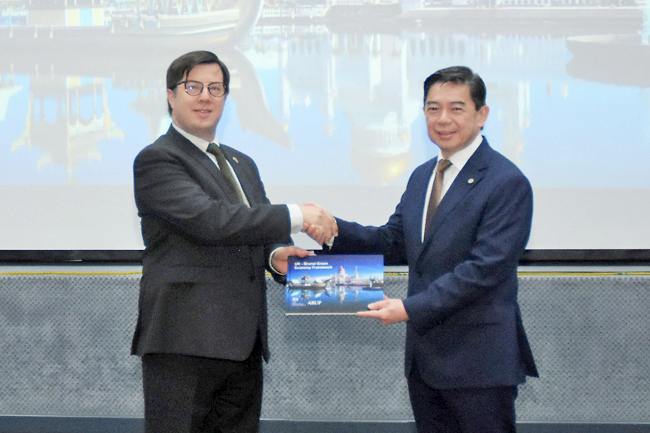
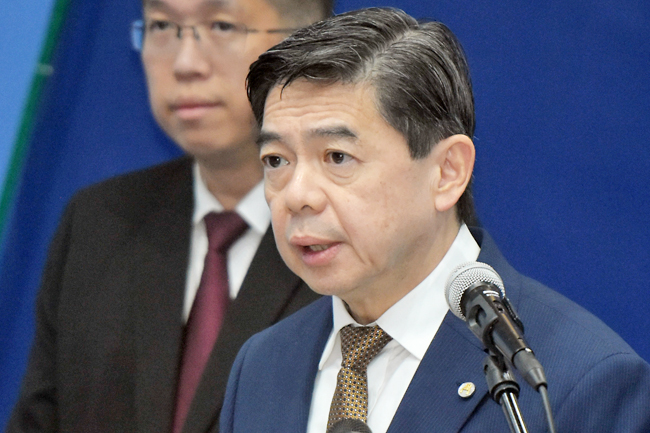
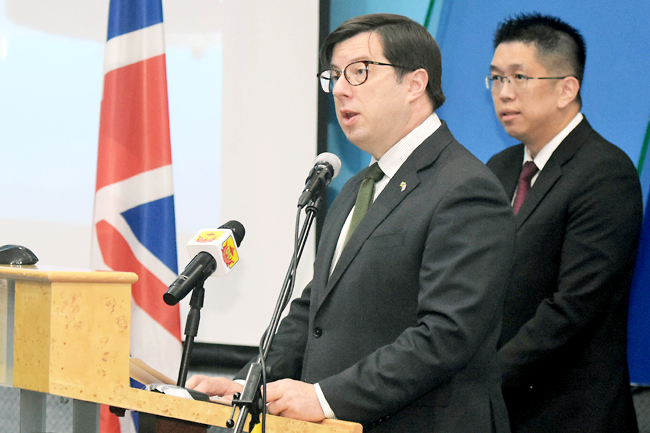
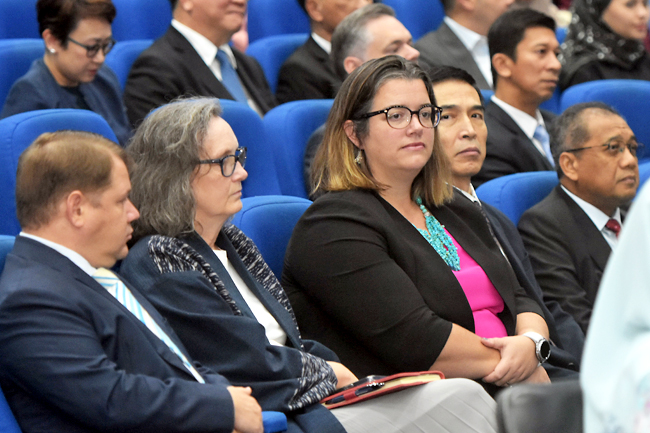
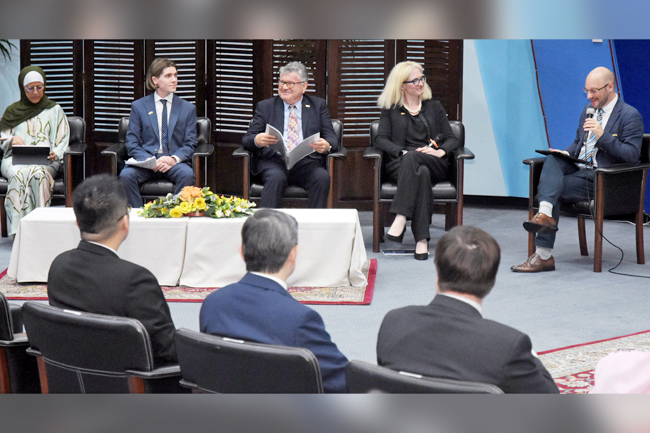
“As we navigate through these challenges, such as geopolitical tensions, the rapid transformation of technology, increase in cyber threats, and especially the challenges posed by climate change, it is evident that our traditional economic model, which heavily depends on fossil fuels is no longer sustainable,” said the minister.
He said diversification is not just an economic imperative, but a necessity for Brunei.
“Successfully diversifying our economy will mean a reduced dependency on oil and gas, therefore making our economy more robust against external market shocks. Furthermore, it will also allow us to tap into new growth sectors, and create new job opportunities for our people,” he added.
British High Commissioner to Brunei Darussalam John Virgoe said the project sought to “help answer the question of how Brunei can diversify and grow its economy while meeting its climate change targets”.
He said, “Both our countries face the challenge of evolving a new economic and industrial model that can continue to generate prosperity and jobs in a more sustainable and resilient way.
“To achieve this challenging goal, we must be thoughtful and strategic in where we focus our attention, our energy and our investments.
“We hope the report will provide a helpful input to the Bruneian authorities, as well as a platform for further engagement with stakeholders, including Brunei’s international partners,” he added.
The report contained an overview of the impacts of climate change on the country’s economy, identifying areas of opportunity as well as challenges that can be used as a basis for developing the green economy in Brunei Darussalam while contributing to the economy in terms of production, new job creation and reduction of carbon production.
A copy of the report, a deliverable under the UK-Brunei Strategic Dialogue: Brunei Green Economy Framework, was handed over to the minister by the British high commissioner.
A discussion panel was also held between experts from Brunei Darussalam and the United Kingdom on ideas, insights and best practices in conducting a green transition while ensuring economic prosperity.
Deputy Minister of Finance and Economy (Fiscal) Dato Seri Paduka Pengiran Hajah Zety Sufina binti Pengiran Dato Paduka Haji Sani, senior government officials, industry experts, representatives from agencies and stakeholders were present at the event. – James Kon






